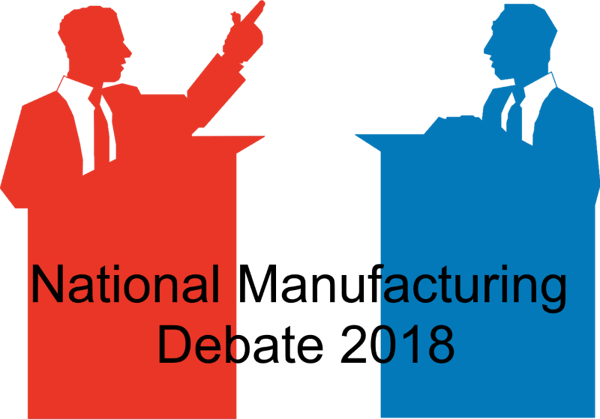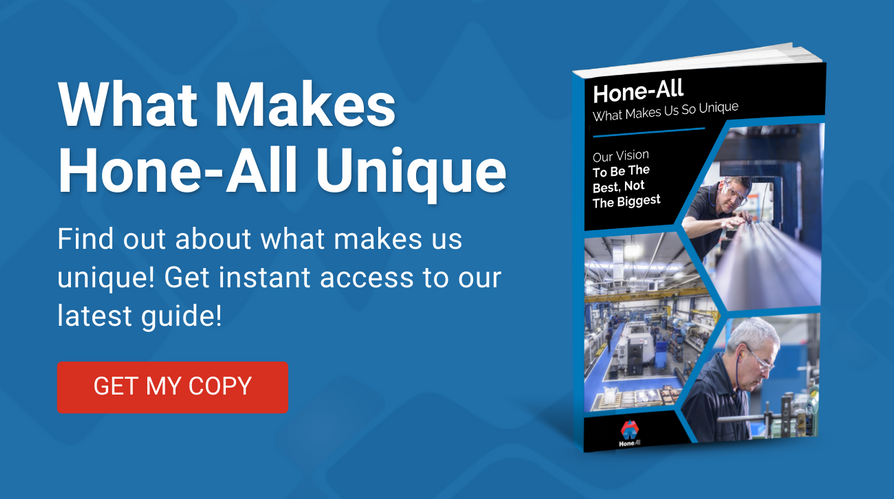
Last month our director Andrea delivered a keynote speech to the National Manufacturing Debate hosted at Cranfield University. The event bought together professionals from several fields to discuss challenges facing the industry, in particular whether the government’s Industry Strategy goes far enough to support growth in UK manufacturing.
Deja Vu
This isn’t the first time the government has discussed an official strategy for manufacturing. In 1999/2000 Tony Blair’s Labour government entered into discussions with industry leaders about a potential Manufacturing Strategy that went on for about 18 months. Andrea was involved in these discussions through her involvement with EEDA and helped formulate a draft policy to support manufacturing businesses grow through the challenges of technological and economic change. Unfortunately nothing came of these efforts at the time.
All Sides Of The Debate
A diverse range of speakers examined the strengths and drawbacks of the Industry Strategy from different angles. A cross-section of opinions were represented, some being broadly supportive (if sceptical on some points) and others disagreeing with the need for a government led strategy at all. Andrea’s speech welcomed the initiative, but pointed out some important deficiencies when it comes to SMEs.
5 Foundations
The Industry Strategy is a 250 page document covering five foundations: Ideas, People, Infrastructure, Business Environment and Places. For those who weren’t at the event an outline of Andrea’s speech is given below. The main themes and arguments have been summarised, with quotes where appropriate:
Too Complex For SMEs
The main problem with the proposed Industry Strategy from a small business perspective is it seems aimed primarily at large industry players. The provisions are too complex and not broad enough for SMEs to take advantage of. Many proposals are couched in “grandiose terminology” without specific detail. And where solid policies are given, it is often a matter of action being “too little, too late”.
“The strategy includes many fabulous ambitions but to us, many are far removed from the daily activities of a small engineering business. And even if the strategy is successful, few benefits will be seen by the company directors of today. And the question is, will it still be supported or even in existence for the Directors of tomorrow with the ever changing political landscape?”
Foundation 1: Ideas
The first stated purpose of the strategy is to promote research and development to create ‘the world’s most innovative economy’.
This is underscored by a government commitment to achieve a level of R&D investment of 2.4% of GDP. However, the complexity of the grant application process means that many SMEs spend up to 20% of their tax credits on consultancies to assist with applications!
Many of the application rules and R&D parameters are unclear, wasting time and money that could directly be invested in training and innovation.
“If the Government clarified and simplified the rules and application process and SME’s were supported with R&D tax credit applications, the Government would achieve their target much more quickly. SME’s are doing R&D every single day, but most see it just as their day to day activities and don’t realise they can claim for a great percentage of the labour, materials and tooling they have used in the process”.
Foundation 2: People
We all recognise the skills shortage and the need for more investment in apprenticeships and training to bring on board the next generation of manufacturing professionals. Recruitment expenses are now higher for some SMEs than expenditure on machinery and tooling supplies because of low unemployment and high demand for technical skills.
So while the government’s renewed commitment to apprenticeships is welcome, this policy would have been more effective had it been introduced 20 or more years ago. The apprenticeship levy is also widely seen as yet another tax on small businesses, with a lot of ambiguity about its specific benefits. This has resulted in a reduction of new apprenticeships since the introduction of the levy.
A cornerstone of the strategy is tax free bursaries worth up to £26,000 to attract science graduates into teaching positions. This is to enable local colleges to expand their curriculum to cover more STEM courses. However, Andrea believes that qualified teachers aren’t the issue.
“Most colleges at present do not have the facilities or equipment to offer such a curriculum, and the strategy is unclear about where funding will come from to expand facilities. Additionally, nothing has been done to address the high cost of on-site training and development for existing employees, with much money being spent on fees and admin costs levied by training providers.”
Foundation 3: Infrastructure
The Industry Strategy claims to inaugurate a major upgrade of the UK’s manufacturing infrastructure. However, the policies in this section are worryingly lacking in detail. Others are token concessions. For instance, while the government’s commitment to superfast broadband is admirable, this comes several years too late. Domestic customers have had access to fast Internet for many years; it is scandalous that so many industrial estates still lack access to fibre-optic broadband.
The Strategy seeks to decentralise infrastructure planning by giving responsibility to Local Enterprise Partnerships (LEPs) to determine strategies for their local area. This ignores the fact that many LEP’s have little connection with, nor understanding of the needs of local businesses.
“SMEs in many parts of the country struggle to find information about grant funding availability or business advice, especially since funding was cut for the Regional Development Agencies and the Manufacturing Advice Service.”
Foundation 4: Business Environment
The government’s efforts to encourage businesses to invest in up-to-date technology are hindered by consistent moves over the last few years to cancel business support services and funding initiatives. The practical services that remain are skewed towards research and development, rather than general growth and investment.
“We also need an economic and tax environment which promotes and rewards investment, not just in R&D! Reinstating 100% capital allowances would promote growth and improve productivity by enabling businesses to continually invest in the most recent technology. Growth in demand within this sector then enables the machine tool OEM’s to invest in manufacturing better equipment with higher performance and the positive cycle continues.”
Foundation 5: Places
The section of the document that aims to create ‘prosperous communities across the UK’ is again lacking in specific detail. What initiatives there are seem focused on easy gain areas, such as the high-tech industry in Cambridge, rather than dispersed across the country to benefit a broader cross-section of SMEs.
“The Industrial Strategy Commission said ‘An industrial strategy should not seek to do everything everywhere, but it should seek to do something for everywhere’. I simply can’t see this happening unless there is a distinct change in the role and accountability of the LEP’s.”
A Missed Opportunity
Andrea’s conclusion is that the proposed Industrial Strategy is a missed opportunity to genuinely decentralise responsibility and give opportunities to the manufacturing businesses that need it most. Instead, responsibility is being devolved to uninformed and unaccountable LEP’s, with no concrete policies in place to reduce the high cost of doing business in the UK.
“The Industry Strategy reads like a general mission statement, when what is needed is a business plan with practical guarantees of support – linked to clear financing and deliverable timeframes.”





